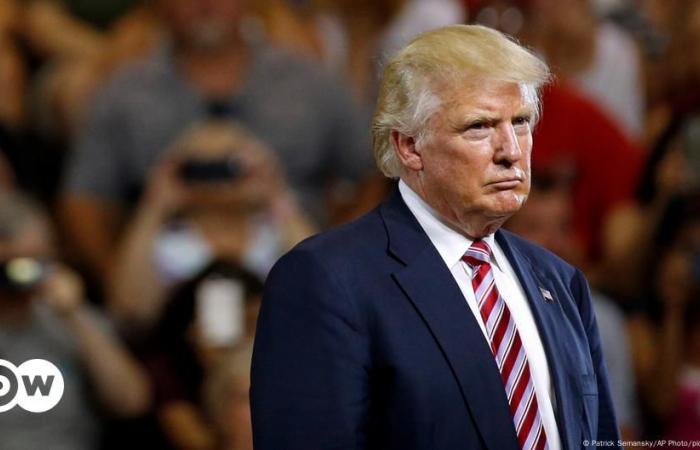On January 20, 2021, at the same time as Joe Biden’s inauguration ceremony, the outgoing president at the time, Donald Trump, left the White House without attending the event.
His triumphant return four years later does not, however, make us forget the unrest of January 6, 2021, when supporters of Donald Trump stormed the Capitol to contest the results of the presidential election which thus made Joe Biden the 46th president of the United States.
Same actors, new context
Joe Biden has promised a peaceful and orderly transfer of power with the man he has repeatedly described as a “danger” to American democracy. Early in his term, Joe Biden faced many challenges, including calming and reuniting the country after the storming of the Capitol and reviving the economy after years of the Covid-19 pandemic.
Donald Trump’s triumphant return to the White House
To play this audio please enable JavaScript, and consider upgrading to a web browser that supports HTML5 audio
If some economists agree that he succeeded in reviving the American economy, with his investment plan called the “Inflation Reduction Act”, at the level of domestic policy, some deplore failures at the level the regulation of the carrying of weapons, the taxation of the richest or even on migration policy.
The return of Donald Trump to the White House could therefore jeopardize Joe Biden’s record given the team he is shaping, with radical appointments. For example, he announced, very recently, the appointment of Elon Musk, boss of Tesla and the richest man on the planet, at the head of a new ministry of “Government Effectiveness”, alongside the man Republican businessman Vivek Ramaswamy.
Donald Trump would also plan to entrust diplomacy to Senator Marco Rubio, known for being a supporter of a very hard line against China and Iran. On defense, he would consider appointing Pete Hegseth, a former Army major and current Fox News anchor, while Kristi Noem, the current governor of South Dakota, would become secretary of Homeland Security.
Finally, Donald Trump promised mass expulsions of illegal immigrants and a radical protectionist shift in economic matters.






